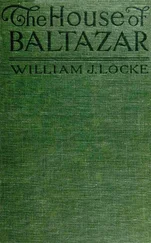William Locke - The Belovéd Vagabond
Здесь есть возможность читать онлайн «William Locke - The Belovéd Vagabond» — ознакомительный отрывок электронной книги совершенно бесплатно, а после прочтения отрывка купить полную версию. В некоторых случаях можно слушать аудио, скачать через торрент в формате fb2 и присутствует краткое содержание. ISBN: , Жанр: foreign_prose, на английском языке. Описание произведения, (предисловие) а так же отзывы посетителей доступны на портале библиотеки ЛибКат.
- Название:The Belovéd Vagabond
- Автор:
- Жанр:
- Год:неизвестен
- ISBN:http://www.gutenberg.org/ebooks/28489
- Рейтинг книги:5 / 5. Голосов: 1
-
Избранное:Добавить в избранное
- Отзывы:
-
Ваша оценка:
- 100
- 1
- 2
- 3
- 4
- 5
The Belovéd Vagabond: краткое содержание, описание и аннотация
Предлагаем к чтению аннотацию, описание, краткое содержание или предисловие (зависит от того, что написал сам автор книги «The Belovéd Vagabond»). Если вы не нашли необходимую информацию о книге — напишите в комментариях, мы постараемся отыскать её.
The Belovéd Vagabond — читать онлайн ознакомительный отрывок
Ниже представлен текст книги, разбитый по страницам. Система сохранения места последней прочитанной страницы, позволяет с удобством читать онлайн бесплатно книгу «The Belovéd Vagabond», без необходимости каждый раз заново искать на чём Вы остановились. Поставьте закладку, и сможете в любой момент перейти на страницу, на которой закончили чтение.
Интервал:
Закладка:
"I am eighteen, Monsieur, I know I shall not make a fortune. I am not pretty enough even when I paint, and my figure is heavy. That is what Père Paragot used to complain of."
"What was his name?" asked my master, pricking up his ears.
"Berzélius Paragot – and he took the name of Nibbidard, which means 'no luck' – so he loved to call himself Berzélius Nibbidard Paragot."
"Berzélius Nibbidard Paragot," mouthed my master joyously. "I would give anything for a name like that!"
"It is yours if you like to take it," she said quite seriously. "No one will want it any more."
"Little Asticot of my heart," said he, "what do you think of it?"
It struck me as a most aristocratically romantic appellation. I was used to his aliases by this time. He had long ceased to call himself "Pradel," and what was our surname for the moment I am now unable to recollect.
"You look like 'Paragot,' Master," said I, and, in an inexplicable way, he did – as I have before remarked. He called me a psychometrical genius and enquired the name of the young lady.
"Amélie Duprat, Monsieur," she said. "But pour le métier – we must have professional names for the cafés – Père Paragot called me 'Blanquette de Veau.'"
"Delicious!" cried he.
"So everyone calls me Blanquette," she explained gravely. There was a silence. Paragot – he really assumed the name from this moment – refilled his pipe. The belated peasants, having finished their wine, clattered out of the café, and took off their hats as they passed us.
"Life is very hard, is it not, Messieurs?" remarked Blanquette. It seemed to be her favourite philosophic proposition. She sighed. "If Père Paragot had only lived to play at the wedding tomorrow!"
"What then?"
"I should have had ten francs."
"Ah!" said my master.
"First I lose my louis, and now I lose my ten francs! ah! Sainte Vierge de Miséricorde! "
It was heart-rending. Sometimes they received more than the stipulated fee at these village weddings. They passed the hat round. If the guests were mellow with good wine, which makes folks generous, they often earned double the amount. And they always had as much as they liked to eat, and could take away scraps in a handkerchief.
"And good wholesome nourishment, Monsieur. Once it was half a goose."
And now there was nothing, nothing. Blanquette did not believe in the bon Dieu any longer. She buried her face in her arms and wept. Paragot smoked helplessly for a few moments. I, unused to women's tears, felt the desolation of the race of Blanquette de Veau overspread me. But that I considered it to be beneath my dignity as a man, I should have wept too.
Suddenly Paragot brought his fist down on the table and started to his feet. Blanquette lifted a scared wet face, dimly seen in the half light.
" Tonnerre de Dieu! " cried he, "If you hold so much to your ten francs and half a goose, I myself will come with you to Chambéry tomorrow and fiddle at the wedding."
"You, Monsieur?" she gasped.
"Yes, I. Why not? Do you think I can't scrape catgut as well as Père Paragot?"
He walked to and fro declaring his musical powers in his boastful way. If he chose he could rip out the hearts of a dead Municipal Council with a violin, and could set a hospital for paralytics a-dancing. He would have fiddled the children of Hamelin away from the Pied Piper. Didn't Blanquette believe him?
"But yes, Monsieur," she said fervently.
"Ask Asticot."
My faith in him was absolute. To my mind he had even understated his abilities. The experience of the disillusioning years has since caused me to modify my opinions; but Paragot's boastfulness has not lessened him in my eyes. And this leads to a curious reflection. When a Gascon boasts, you love him for it; when a Prussian does it, your toes tingle to kick him to Berlin. His very whimsical braggadocio made Paragot adorable, and I am at a loss to think what he would have been without it.
"Of course," said he, "if you are proud, if you don't want to be seen in the company of a scarecrow like me, there is nothing more to be said."
Blanquette humbly repudiated the charge of pride. Her soul was set on her ten francs and she didn't care how she got them. She accepted Monsieur's generous offer out of a full heart.
"That's sense," said my master. "We shall rehearse at daybreak."
CHAPTER VI
Dawn found us all in a field some distance from the café – Paragot, Blanquette, Narcisse, the zither, the fiddle and I, and while the two musicians rehearsed the jingly waltzes and polkas that made up the old man's répertoire, I tried to explain the situation to Narcisse who sat with his ears cocked wondering what the deuce all the noise was about.
"Ah, Monsieur," said Blanquette, during a pause, "you play like a great artist."
"Didn't I tell you so?" he cried triumphantly.
"You must have studied much."
"Prodigiously," said he.
"Père Paragot had played the violin for sixty years, but he could not make it sing like that."
"You would not compare Père Paragot with my master?" I exclaimed by way of rebuke.
Blanquette acquiesced humbly.
"When one hears Monsieur, one has the devil in one's body."
"Listen to this," said the delighted Paragot jumping on to his feet and tucking the fiddle beneath his chin.
And there in the pure dawn with nothing but God's sky and green fields around us, he played Gounod's "Ave Maria," putting into his execution all his imaginative fervour, and accentuating the tremolo passages in a vibrating ecstasy which to Blanquette's uncultured soul was the very passion of music. I have since learned that the greatest violinists do not overemphasise the tremolo.
"Ah Dieu! it is beautiful," she murmured.
"Isn't it?" cried Paragot. "And it touches your heart, my little Blanquette, eh? We are all artists together."
"I, Monsieur?"
She laughed and ran her hands over the zither strings.
"I ought to be at work in the fields. So Père Paragot used to say. I make no progress – I am as stupid as a goose."
Two hours afterwards we started for Chambéry, as odd a procession as ever gave food for a high-road's gaiety. From the old grey valise carried the previous day by Blanquette she had produced much property finery. A black velveteen jacket resplendent with pearl-buttons, velveteen knee-breeches tied with ribbons at the knees, and a rakish Alpine hat with a feather adorned my master's person. His own disreputable heavy boots and a pair of grey worsted stockings may not have formed a fastidious finish to the costume; but in my eyes he looked magnificent. Towards the transfiguration of Blanquette a Pandora box could not have effected more. She was attired in a short skirt, a white fichu moderately fresh, a kind of Italian head-dress and scarlet stockings. Enormous gilt ear-rings swung from her ears; a cable of blue beads encircled her neck; her lips were dyed pomegranate, her eyes darkened and her cheeks touched with rouge. A pair of substantial gilt shoes slung over her shoulders clinked their heels together as she walked. Narcisse barked his ecstatic admiration around this beauteous creature, and had I been a dog I should have barked mine too. My dignity as a man only allowed me to cast sidelong glances at her and hope that she would soon put on the gilt shoes. As for my master, on beholding her, he doffed his hat and saluted her with a fantastic compliment, whereat the girl blushed brick-red and turned her head away.
"Motley's the only wear, my son," he cried gaily. "In this cap and bells, I see life under a different aspect. Never has it appeared to me sweeter and more irresponsible. Don't you feel it? But I forgot. You haven't any motley. I apologise for my want of tact. Blanquette," he added in French, "why haven't you found a costume for Asticot?"
Читать дальшеИнтервал:
Закладка:
Похожие книги на «The Belovéd Vagabond»
Представляем Вашему вниманию похожие книги на «The Belovéd Vagabond» списком для выбора. Мы отобрали схожую по названию и смыслу литературу в надежде предоставить читателям больше вариантов отыскать новые, интересные, ещё непрочитанные произведения.
Обсуждение, отзывы о книге «The Belovéd Vagabond» и просто собственные мнения читателей. Оставьте ваши комментарии, напишите, что Вы думаете о произведении, его смысле или главных героях. Укажите что конкретно понравилось, а что нет, и почему Вы так считаете.












